Mar
8
2015

Satan’s desire was always to turn the “pruning” of circumcision into an ax laid at the root of the tree of Israel.
A handful of treatments of the “massacre of the innocents” by Herod the Great see this bloodshed as the first of the New Covenant’s martyrs. But these miss the point of Matthew’s use of the word “fulfilled,” rendering it as good as meaningless. This massacre was the harbinger of the end of the old era and its promises. It said nothing about the promises of the new.
Continue reading
Comments Off | tags: Acts, AD70, Babylon, Baptism, Circumcision, Communion, Covenant curse, Covenant Theology, Herod, Jeremiah, Joseph, Literary Structure, Matthew | posted in Bible Matrix, Biblical Theology, The Last Days
Oct
8
2014
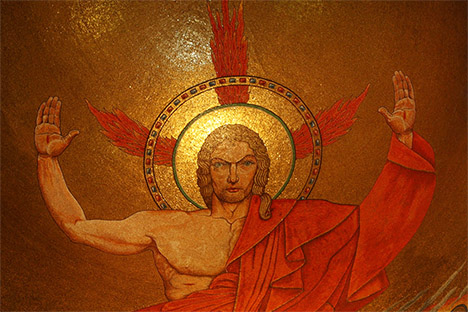
After describing to an older Christian friend what happened in Jerusalem during the Jewish war, he replied, “Why have I never been taught this?”
Without their Covenant context and historical bearings, the pointy words of Jesus become so “generalized” that they seem inconsequential. In the wisdom of God, the tragic events of AD70 were recorded that we might understand the consequences of ignoring Jesus. They nail the New Testament Scriptures to the ground.
Continue reading
Comments Off | tags: AD70, Covenant curse, Covenant Theology, Literary Structure, Matthew | posted in Bible Matrix, Biblical Theology
Aug
17
2014
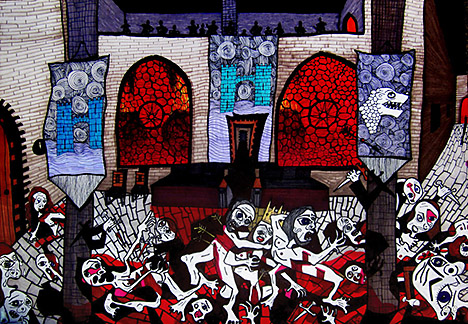
For as in those days before the flood
they were eating and drinking,
marrying and giving in marriage,
until the day when Noah entered the ark…
(Matthew 24:38)
The Oath/Sanctions section of the Revelation seems to have three parts. The judgment begins in the house of God (Temple bowls – Garden), then follows the revelation of the “mystery” of the Woman and the kings of the Land, and finally the judgment reaches out to the borders of the World (the oikoumene). This corresponds not only with the Garden, Land, World architecture of the nations in Genesis 1-10, it brings an end to the “intermarriage,” the compromise of the Priestly people with idolatrous kings. It is fitting that the third part of this judgment (chapters 18-19) culminates in a Red Wedding.
Continue reading
Comments Off | tags: AD70, Covenant curse, Covenant Theology, Josephus, Literary Structure, oikoumene, Revelation, Temple | posted in Bible Matrix, Biblical Theology, The Last Days
Jun
28
2014
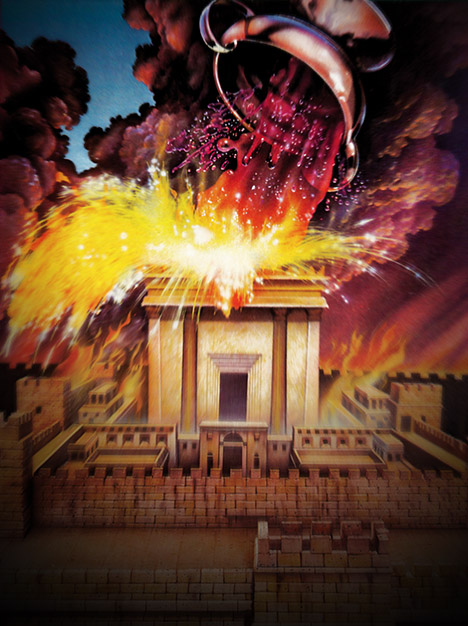
or Where Kenneth Gentry Is Wrong on the Revelation
Part 1 here.
I’ve been meaning to write this post since I wrote Part 1 (over two years ago). A friend’s recent question concerning Kenneth Gentry’s lectures on the Revelation encouraged me to bite the bullet and bust a gut and get it done. The question is this: Is the Revelation to be interpreted in the light of Josephus’ Jewish War, or in the light of the Bible itself?
Continue reading
6 comments | tags: AD70, Ark of the Covenant, Covenant curse, Covenant Theology, Deuteronomy, James B. Jordan, Kenneth Gentry, Leviticus, Literary Structure, Peter Leithart, Revelation, Revelation 20, Thessalonians | posted in Against Hyperpreterism, Bible Matrix, Biblical Theology, The Last Days
Jun
25
2014
Comments Off | tags: AD70, Herod | posted in Bible Matrix, Biblical Theology, The Last Days
Jun
1
2014

The final vision of Ezekiel is one of the most hotly debated passages in the Bible. Since the structure described has never been built, those who take the passage as fulfilled in history believe it to be figurative. However, the building is described in such careful detail that common sense suggests that something else is going on. The precise measurements remind us of the instructions given concerning the Tabernacle and Solomon’s Temple for the purpose of physical construction. Is Ezekiel’s temple a false prophecy, or does it describe a third, and as yet unbuilt, Temple in Jerusalem?
Continue reading
3 comments | tags: AD70, Daniel, Esther, oikoumene | posted in Bible Matrix, Biblical Theology, The Restoration Era
Mar
10
2014

For as in those days before the flood they were eating and drinking, marrying and giving in marriage, until the day when Noah entered the ark, and they were unaware until the flood came and swept them all away, so will be the coming of the Son of Man. (Matthew 24:38-39)
Most disputes concerning the meaning of the Scriptures are not due to a lack of trying when it comes to hermeneutics. They result from a lack of due process. By this, I do not mean the process of interpretation but the identification in the Scriptures of the processes of God.
An example would be the meaning of Christ’s words concerning the unpardonable sin, which have terrified many Christians unnecessarily. Blasphemy against the Spirit is unpardonable not because it is the worst sin. It is unpardonable because it is the last sin.
This post has been slain and resurrected for inclusion in my 2015 book of essays, Inquietude.
Continue reading
2 comments | tags: AD70, Babylon, Covenant Theology, Genesis, Hebrews, Herod, Matthew, Matthew 24, Nebuchadnezzar, Noah, Numbers | posted in Bible Matrix, Biblical Theology, Christian Life, The Last Days
Dec
27
2013
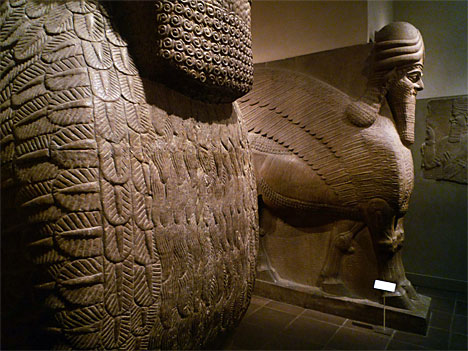
Now after Jesus was born in Bethlehem of Judea in the days of Herod the king, behold, wise men from the east came to Jerusalem, saying, “Where is he who has been born king of the Jews? For we saw his star when it rose and have come to worship him.” When Herod the king heard this, he was troubled, and all Jerusalem with him… (Matthew 2:1-2)
An atheist recently declared to me that a cumulative reading of the Bible makes no sense, since the Bible is not a single book but an anthology. I agree, but this “anthology” is indeed a single work because it was compiled by God. Without that foundation, the significance of much of its detail appears redundant. A good example is the wise men from the east in Matthew 2.
Continue reading
2 comments | tags: AD70, Christmas, Daniel, Herod, James Jordan, Matthew, Nebuchadnezzar, Revelation | posted in Biblical Theology, The Last Days
Dec
11
2013

“Titus was the only individual in history that could be said to have fulfilled Jesus’ prophecies concerning the Son of Man.” – Joseph Atwill
“But whenever they persecute you in this city, flee to the next; for truly I say to you, you shall not finish going through the cities of Israel, until the Son of Man comes.” (Matthew 10:17-23)
Joseph Atwill is a biblical scholar who believes that the Gospels were a satirical invention of the Romans for the purpose of pacifying the Jews. This sounds harebrained, but as I have written elsewhere (see Jesus’ Caesars), he does have a gut sense of the way the Scriptures speak. He has observed that the conquest of Judea by Titus follows a similar route to the one traced by Jesus in the Gospels one generation earlier. Atwill’s conclusion is back-to-front, but his observation remains profound. If Judea would not accept the true King of the Jews, she would be “ministered to” by a Prince of the Gentiles. Jesus’ ministry ended with the tearing of the Temple Veil. Titus’ campaign ended with the destruction of the entire Temple.
“What time Ierusalem that Cittie faire,
Was sieg’d and sackt by great Vespatians heire”
(Thomas Dekker, Canaans Calamitie, Ierusalems Misery)
What follows is an excerpt from Atwill’s book, Caesar’s Messiah, which includes the kind of chart you might be used to finding around here.
* * * * * * *
Continue reading
2 comments | tags: AD70, Josephus | posted in Biblical Theology, Quotes, The Last Days
Dec
6
2013
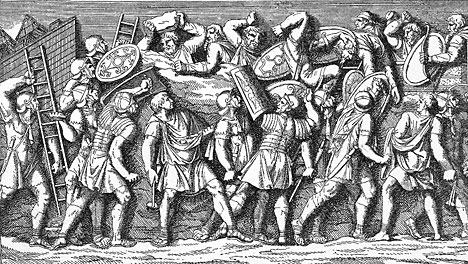
[A guest post by Chris Wooldridge]
“Woe to you, Chorazin! Woe to you, Bethsaida! For if the mighty works done in you had been done in Tyre and Sidon, they would have repented long ago in sackcloth and ashes. But I tell you, it will be more bearable on the day of judgment for Tyre and Sidon than for you. And you, Capernaum, will you be exalted to heaven? You will be brought down to Hades. For if the mighty works done in you had been done in Sodom, it would have remained until this day. But I tell you that it will be more tolerable on the day of judgment for the land of Sodom than for you.” (Matthew 11:21-24)
If we are paying careful attention to the historical context of this passage, it should be clear enough that the “day of judgment” referred to was fulfilled in the Jewish war of 66-70 AD. But why then does he seem to bring Tyre and Sidon/Sodom onto the scene in verses 22 and 24? Are we dealing here with a future judgment of the inhabitants of these cities, perhaps one which awaits the second coming of Christ?
Continue reading
Comments Off | tags: AD70, Chris Wooldridge, Covenant Theology, Jonah, Josephus, Matthew | posted in Biblical Theology, Quotes, The Last Days



































